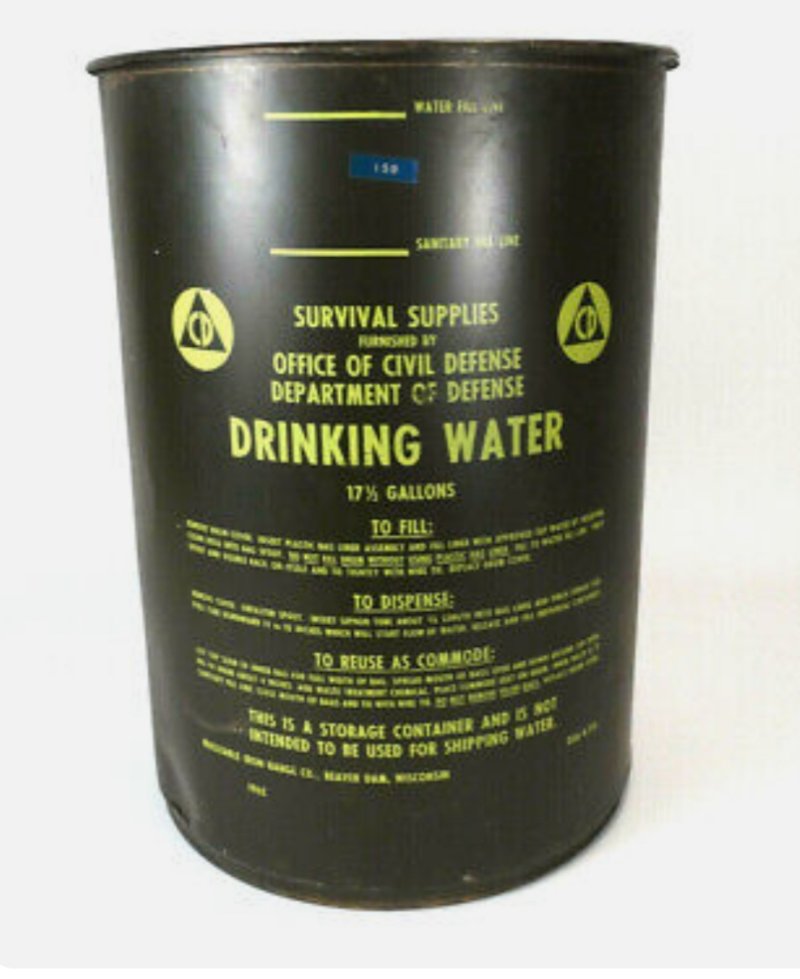I posted this as a comment, but haven't seen an answer. With all the prep for SHTF, I see numerous stored dried items, beans, rice, dehydrated fruits, etc.... These require a lot of water over time to cook or hydrate.... How much water are you storing? How are you storing it?
Navigation
Install the app
How to install the app on iOS
Follow along with the video below to see how to install our site as a web app on your home screen.
Note: This feature may not be available in some browsers.
More options
You are using an out of date browser. It may not display this or other websites correctly.
You should upgrade or use an alternative browser.
You should upgrade or use an alternative browser.
Water
- Thread starter darrenmd
- Start date
40,000+ gallons right outside my back door. I treat it with chlorine and filter it through a sand filter twice a day. Other than that we have a garden spike with a hand pump in the back yard.
Installed it myself. Not sure about any laws regarding installation.
I have a fresh /bottled supply for a comfortable 30 or a rationed 45 days... water can be found in a lot of places
1. toilet tanks
2. water heater (mine holds 80 gallons)
3. if no water pressure, open lowest spigget or valve with a bucket under it and then open the highest ones to drain the water in the pipes to the lowest level
4. condesation traps work well and are easy to construct
5. dishwashers usually hold a decent amount of water in the pipes under them that
6. if no power, put your ice maker ice in a cooler to melt
7. drain water hose from refriderator
8. collect frozen water of condenser coil in freezer as it melts.
9. Given that power is out as well...any frozen foods that will have to be cooked will produce condensation as they thaw, collected in drip pan
Plenty more sources for initial survival until you can scout a new source. All water sources should be treated and filtered of course
1. toilet tanks
2. water heater (mine holds 80 gallons)
3. if no water pressure, open lowest spigget or valve with a bucket under it and then open the highest ones to drain the water in the pipes to the lowest level
4. condesation traps work well and are easy to construct
5. dishwashers usually hold a decent amount of water in the pipes under them that
6. if no power, put your ice maker ice in a cooler to melt
7. drain water hose from refriderator
8. collect frozen water of condenser coil in freezer as it melts.
9. Given that power is out as well...any frozen foods that will have to be cooked will produce condensation as they thaw, collected in drip pan
Plenty more sources for initial survival until you can scout a new source. All water sources should be treated and filtered of course
I have a fresh /bottled supply for a comfortable 30 or a rationed 45 days... water can be found in a lot of places
1. toilet tanks
2. water heater (mine holds 80 gallons)
3. if no water pressure, open lowest spigget or valve with a bucket under it and then open the highest ones to drain the water in the pipes to the lowest level
4. condesation traps work well and are easy to construct
5. dishwashers usually hold a decent amount of water in the pipes under them that
6. if no power, put your ice maker ice in a cooler to melt
7. drain water hose from refriderator
8. collect frozen water of condenser coil in freezer as it melts.
9. Given that power is out as well...any frozen foods that will have to be cooked will produce condensation as they thaw, collected in drip pan
Plenty more sources for initial survival until you can scout a new source. All water sources should be treated and filtered of course
I agree with this for a short term.... I am thinking if things last longer than a few months....
It has an electric pump on it, however it can be removed and replaced with a hand pump in a matter of minutes. I'm from New Mexico where we all put these in our yards to water our grass. Installed one here out of habit. Don't really have a use for it.This is a hand pump well correct?
I agree with this for a short term.... I am thinking if things last longer than a few months....
how long a term? All you really need to do is outlast the majority of people around you and then have access to their supplies (so long as they do not know about the above ways to find water in your own home)
rain collection (if it rains)... these methods could be used to collect water from neighboring houses and many people A. will not know about it, B. try to find water elsewhere and abandon their homes or C. die off leaving water for you!
other than that... I would ultimately plan to move closer to a large water source... inherent risks and threats be damned.
Installed it myself. Not sure about any laws regarding installation.
My google foo comes up with metal stakes when I look up garden spike... Is it a well if so how did you install it your self?




